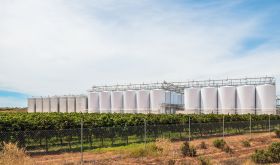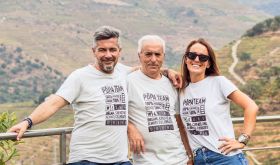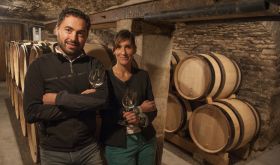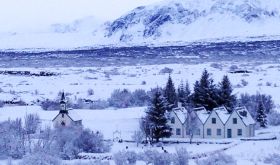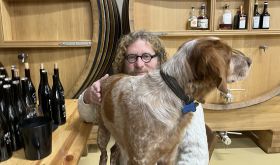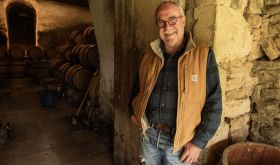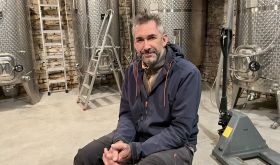No wine retailer excites such strong and contradictory comment as Naked Wines. The customers of this six-year-old, mould-breaking online retailer seem to love it – at least to judge from their thousands of wine reviews, a sort of mini CellarTracker. They feel good about Naked's unparalleled methodology of funding winemakers in advance, and these wine producers, for obvious reasons, also love Naked. But wine producers who have either never had any dealings with them, or who have been approached but have declined to do business with them, are deeply suspicious of them. And the conventional wine trade fear and loathe Naked in equal measure.
You rarely hear a kind word about Naked in wine-trade circles. According to the trade rumour mill, theirs is a bubble that is about to burst. They are evil masters of spin who tell half-truths and have committed the worst sin of all: enticing tens of thousands of wine drinkers and turning them into loyal customers. Typical of their public-relations prowess is an article in the Daily Telegraph financial pages headlined 'Naked Wines shares maiden profit with staff'. What is described as a 'wine venture capital firm' was reported in March 2013 to have 'handed £35,000 to 34 staff'. No mention of their owners Wein International, the German company once better known as Pieroth in Europe (PRP in the US), who used to send hapless wine salesmen into people's homes. Instead we are given the impression that this is the cuddliest of struggling wine retailers.
But when I asked the head of Majestic Wines the other day whom he saw as his main competitor, he spat out 'Naked' in a trice. In the old days it would probably have been the Laithwaite's/Direct Wines group, Britain's biggest direct wine seller and owner of most of Britain's mail-order wine clubs which has now expanded into the US, Australia, Hong Kong, Taiwan, Switzerland, Germany, Sweden, Denmark and Poland.I see a direct parallel between Naked Wines and Laithwaite's. They both have a business model which operates outside wine-trade norms. Not for them the old system whereby a retailer buyers from a wholesaler who might buy from an importer or the agent of a producer. They don’t need to kowtow to any supermarket buyer, but go straight to the producer and offer wines unavailable elsewhere, thereby making direct price comparisons virtually impossible.
Laithwaite's may now be dealing in the fine-wine market and have thousands of cases of conventional fine wine stored on their customers' behalf so that a certain amount of price transparency is required, but this is only after decades of relentless direct marketing to individual wine consumers. Operating outside the conventional trade would seem to be a hugely successful strategy, as Rowan Gormley, who founded Naked Wines, knows only too well for his original wine company, Virgin Wines, was taken over by Laithwaite's in 2005. He left not long after and, a chartered accountant with a Branson twist, stumbled across the idea of crowd funding before the term had even been coined. The Naked idea is that customers stump up £20 a month against future purchases at discounted prices which goes towards funding wine producers. A recent 'fine wine' bond offer of £3 million apparently exceeded its original target by £2 million, and Naked have cunningly spread word that they may have to close their books to new investors. The sales pitch is that their investors fund struggling young winemakers who need capital in order to turn their talent into delicious liquids.
In reality more than 95% of Naked Wines are sold at the discounted price (described by Naked as 'wholesale prices' but which seem close to the usual retail price to me) and many of the Naked Wines producers are old hands – Randall Grahm of Bonny Doon in California, Virgile Joly of the Languedoc, Jonathan Maltus of Château Teyssier in St-Émilion and Bruwer Raats of South Africa, for instance. The Branson twist has delivered in-house nomenclature designed to appeal to a particular slice of the population. Consumer-investors are known as 'angels'. Those who invest heavily are 'archangels'. They claim to have a total of 146,000 angels in the UK, already 60,000 in their newer American operation and 30,000 in Australia. If you have a question in the US, you address it to their Happiness Team.
The real genius of the Naked Wines model is that it fully grasps and harnesses the possibilities of social media, a concept still foreign to most of the wine trade. Angels review and rate their purchases on the Naked Wines website. This means that individual wines carry tell-tale numbers of purchasers and percentages of the likelihood of a repeat purchase. And once a producer takes the Naked cash, they must agree to enter into direct dialogue with their customers – or at least field someone who can write friendly English on their behalf. Thus nakedwines.com has a section which is effectively a chat room for its suppliers and customers, most of whom agree how wise they were to invest in this way of buying wine.
This is a website carrying all sorts of incendiary and questionable messages such as 'We squeeze less juice from the grape so that we get all the fruit and less of the bitter dregs that make cheap wines taste cheap' and 'Because our growers know that their fruit has been sold upfront, they can harvest at optimal ripeness'. No wonder the rest of the wine trade hate them. And those in the know can see the cracks.
Bruno Lafon is touted as having grown up 'making wines at the ultra expensive, ultra premium Domaine Comte Lafon estate in Meursault so he knows what he's doing'. But he has not been there for half a lifetime, and to an insider it is not obvious why a portion of the same genes as Dominique Lafon would help him, even from his more recent base north of Béziers in the Languedoc, to make Châteauneuf-du-Pape (£26.99, or £19.99 to an angel). Also north of Béziers, Virgile Joly gained a reputation for truly authentic, hand-crafted wines from local varieties, but under Naked auspices his name is attached to Merlot and Sauvignon Blanc that are basic Vin de France (£9.99, or £7.49 to an angel).
But you cannot fault them for consumer involvement. Their road shows such as the one shown above are lovefests for customers and producers. And some seriously talented wine producers have been signed up by Naked. Vincent Paris of Cornas, Rod Easthope of New Zealand, Richard Kershaw of South Africa, Benjamin Darnault of the Minervois and Katie Jones of Roussillon, for example, have all made excellent wine, needed capital to progress, and have been able to do so thanks to Naked.
SOME FAVOURITES
I tasted 80 current offerings from Naked Wines last week (see Richard's and my tasting notes) and I would happily buy the following at the 'angel' price given here.
Moerbei White Gold Chardonnay 2013 Stellenbosch £9.49
Richard's Chardonnay 2013 Elgin £18.99 (and Syrah £14.99)
Stefano di Blasi & Federico Cerelli 2012 Chianti Classico £10.99
Matt Parish Cabernet Sauvignon 2012 Napa Valley £12.99 (from Nov)
Santolin Family Reserve Pinot Noir 2013 Yarra Valley £13.99
Dom du Mortier, Soulane 2012 St-Joseph £14.49
Rod Easthope Pinot Noir 2013 Martinborough £14.99
Vincent Paris 2013 St Joseph, Crozes-Hermitage and Cornas from £13.99




